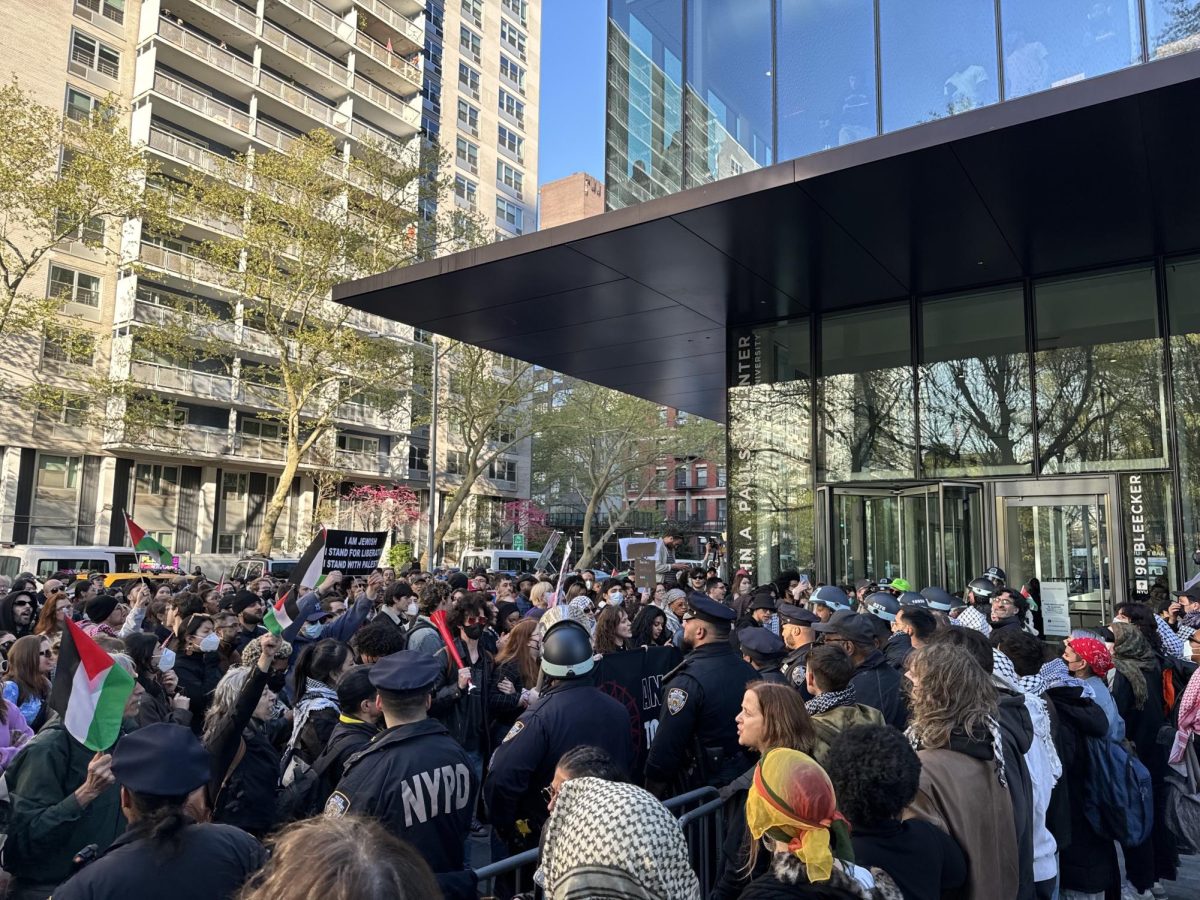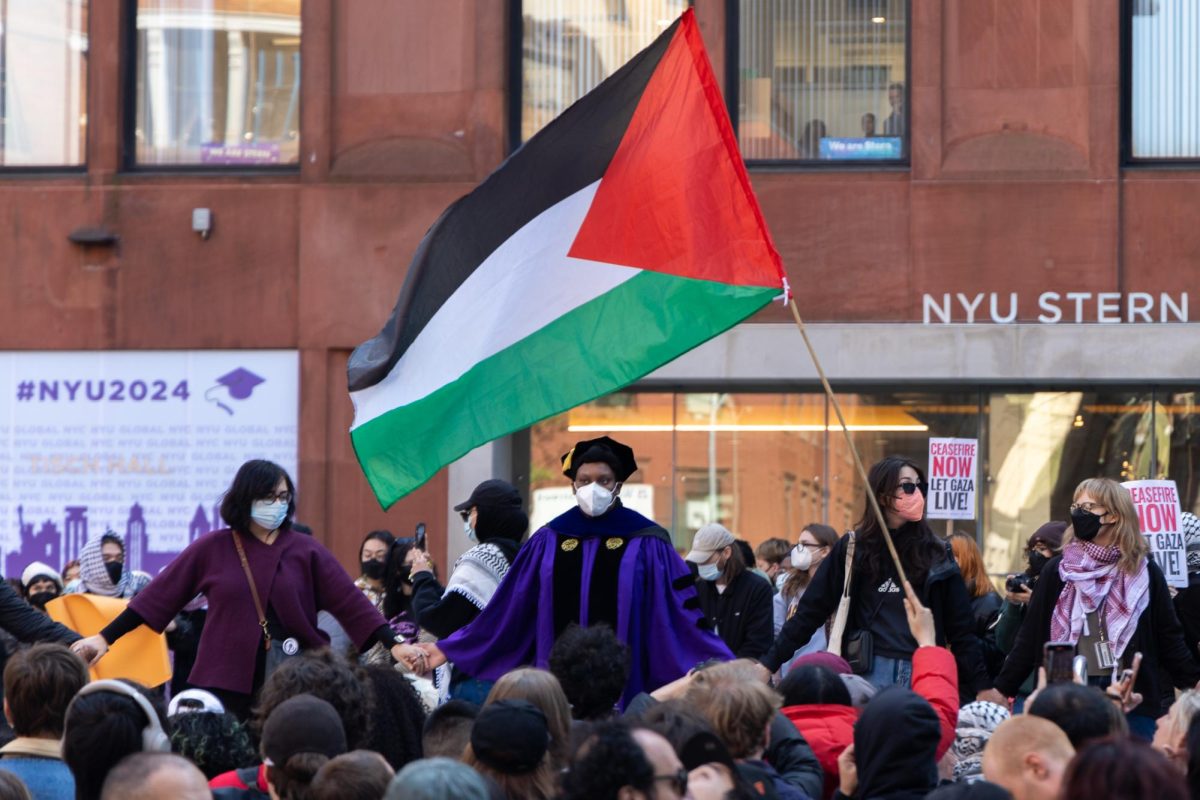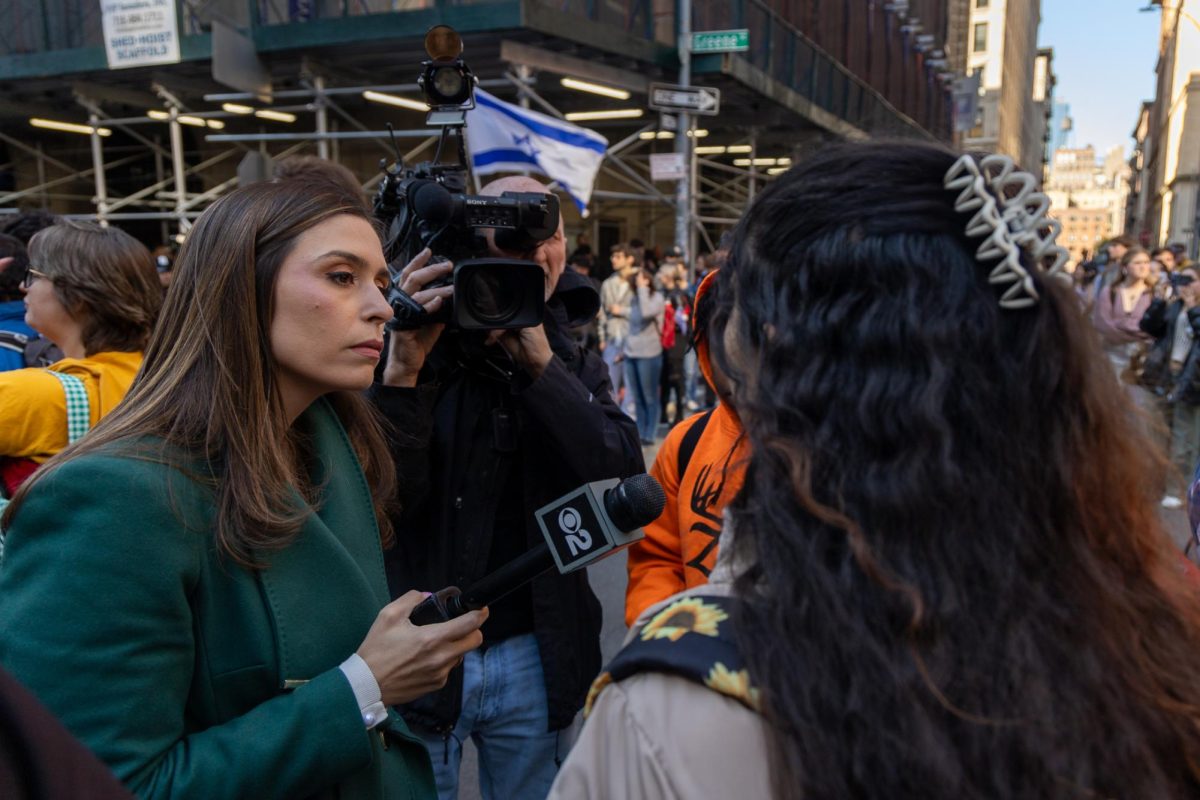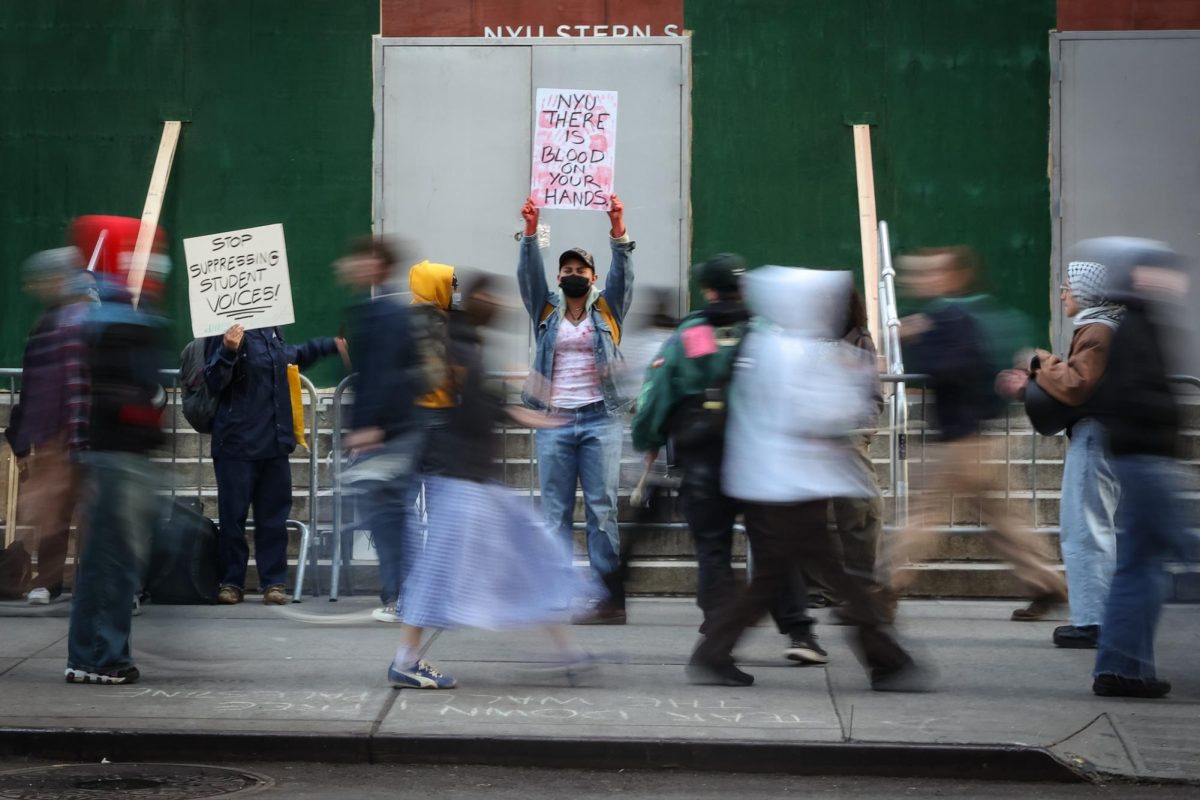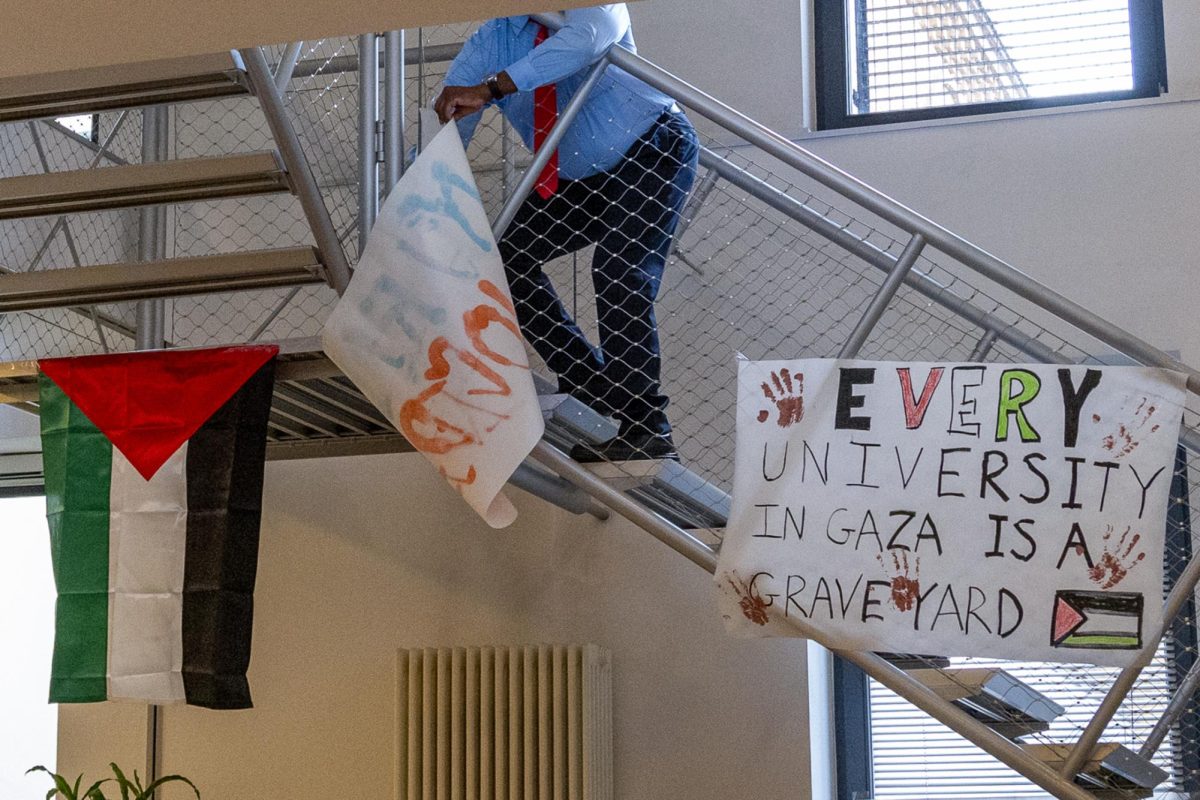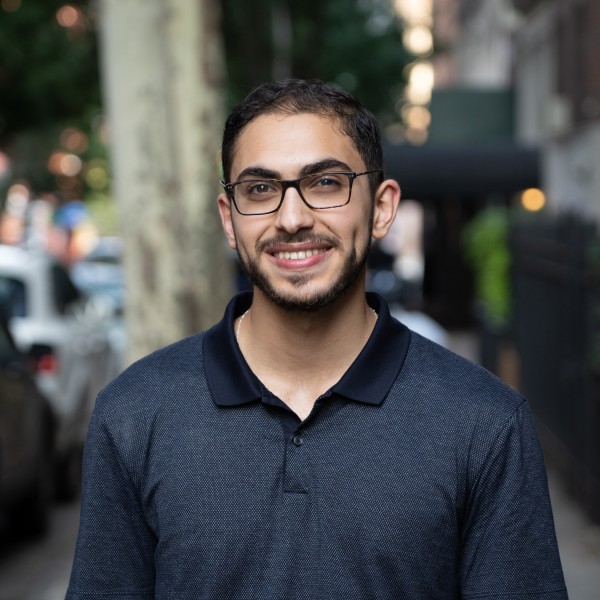The Soapbox: Barcelona cuts ties with Israel, France-Algeria relations, African extremist groups
The Soapbox is a weekly column by WSN covering major news developments at NYU’s campuses and study away sites abroad. Global consciousness for a global university.
The Soapbox is a weekly news column rounding up stories worth reading for a global university. (Staff Illustration by Susan Behrends Valenzuela)
February 10, 2023
In Spain, Barcelona mayor cuts ties with Israel
Ada Colau, the mayor of Barcelona, has severed her city’s relations with Tel Aviv and Gaza, ending a 25-year-long joint agreement between the cities. The left-wing mayor of the Spanish city wrote to Israeli Prime Minister Benjamin Netanyahu on Wednesday, saying that ties would be temporarily suspended until Israel ends “the system of violations of the Palestinian people.”
In 1998, Barcelona entered a twinning agreement — a legal or social agreement between cities — with Tel Aviv and Gaza, aiming to promote economic and cultural developments among the three cities. Colau’s decision to sever ties came less than a year after the Catalan capital launched campaigns to appeal to Jewish and Israeli tourists.
In her letter to Netanyahu, Colau wrote that the city council made the decision in response to a petition which garnered support from thousands of Barcelona residents and hundreds of pro-Palestinian organizations. She also criticized a number of Israeli policies, including its 55-year military occupation of the West Bank and unrecognized annexation of east Jerusalem.
While pro-Palestinian groups, such as the Palestinian Boycott Divestment and Sanctions National Committee, praised Colau’s decision, her political opponents and Barcelona’s Jewish community condemned it as an act of antisemitism. The Federation of Jewish Communities of Spain, the country’s main Jewish representative body, argued that Barcelona had acted unfairly towards Israel, denouncing the decision as “sophisticated antisemitism.” A spokesperson for Israel’s Foreign Ministry called Colau’s decision unfortunate, saying that it gives support to extremists, terrorist organizations and antisemitism.
Immediately following Colau’s announcement, which came just months before local elections, José Luis Martínez-Almeida, the mayor of Madrid, offered to take up the twinning agreement with Tel Aviv. He, too, accused Colau of antisemitism, tweeting that he wishes to share “Madrid’s commitment to democracy and freedom” with Tel Aviv.
In France, government attempts to diffuse tension with Algeria
France is seeking to maintain ties with Algeria after Paris allegedly assisted in the escape of a Franco-Algerian activist who was arrested in Tunisia this week. Journalist and activist Amira Bouraoui was a key leader in the mass protests that brought down Algerian president Abdelaziz Bouteflika in 2019, and in 2021, was sentenced to two years in prison for offending Islam.
Bouraoui was not immediately jailed, but she was barred from leaving the country pending an appeal. She illegally fled to Tunisia and, earlier this week, faced an extradition hearing, which could have forced her to return to Algeria. At the hearing, a judge allowed Bouraoui to remain in Tunisia, where she later boarded a plane to France.
The Algerian foreign affairs ministry accused French diplomats of the “illegal and secret evacuation of an Algerian national.” French deputy foreign ministry spokesperson Francois Delmas said that Bouraoui benefited from foreign protection like all French nationals, according to Reuters, but declined to comment on specific allegations.
In response to France’s alleged support of Bouraoui, Algeria recalled its ambassador to Paris on Feb. 8. The conflict has the potential to undo years of work mending the rocky relationship between the two nations. Last year, during his second state visit to the country, French President Emmanuel Macron said he hoped to move beyond the “painful common past” of French colonization in Algeria and mend the nations’ relationship.
On Thursday, a French foreign ministry spokesperson said that France will continue its efforts to strengthen ties with Algeria despite the incident.
In eight African countries, the UN reports on extremist recruitment
A U.N. report based on interviews of more than 1,000 active or recent militants across eight African countries found that extremist recruits are most often driven by economic deprivation or anger at human rights abuses committed by state security forces.
According to the report, titled “Journey to extremism in Africa: Pathways to recruitment and disengagement,” Islamic militant groups and political instability have most affected the Sahel, as well as Mozambique and the Democratic Republic of the Congo. The U.N. study also found that sub-Saharan Africa has become the center of violent extremism, seeing 48% of global terrorism deaths in 2021.
The study focused on Burkina Faso, Cameroon, Chad, Mali, Niger, Nigeria, Somalia and Sudan, reporting that education, exposure to different cultures and parental attention at a young age are possible preventative factors to voluntary recruitment to extremist organizations. The United Nations Development Programme also cited job opportunities as a primary motivator in youth participation in militant movements.
The lead author of the report, Nirina Kiplagat, said that nearly half of those interviewed for the study cited a specific trigger event pushing them into voluntary recruitment to extremist militant groups, with 71% calling human rights abuses, government action, or the killing or arrest of a loved one “the tipping point.” Among the various factors in voluntary recruitment, religious values only made up 17%.
“Security-driven counter-terrorism responses are often costly and minimally effective, yet investments in preventive approaches to violent extremism are woefully inadequate,” Steiner said. “The social contract between states and citizens must be reinvigorated to tackle root causes of violent extremism.”
Contact Yezen Saadah at [email protected].

